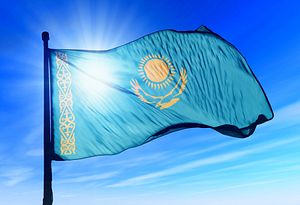President Nursultan Nazarbayev dissolved the lower house of the Kazakh parliament (the Majilis) upon the body’s unanimous request for early elections. The elections are now scheduled for March 20, rather than late 2016 when the lower house’s five-year term expires.
Early elections are the established norm in Kazakhstan. The most recent presidential election was held in April 2015 rather than early 2016; the election before that was held early as well, in April 2011 rather than 2012. The last two parliamentary elections (2012 and 2007) were both held early. None of these elections were judged free and fair by Western observers and while most ran smoothly, they lacked genuine opposition.
The petition requesting the snap election was signed by all three factions represented in the Majilis — the President’s Nur Otan party which holds an overwhelming majority at 83 seats, the uncritical opposition party Ak Zhol which has eight seats, and the communist party which has seven seats. According to Tengrinews, the petition stated, “Only unity and concerted actions will help us withstand the new economic shocks.” RFE/RL referred to all three parties as pro-presidential.
The apparent logic behind the early election is to reaffirm the government’s mandate in the face of extreme economic challenges. This was the same logic for the early presidential election and in the subsequent months the economic hardships have only deepened. Each week brings a new low for the country’s currency (currently sitting around 360 tenge per dollar after dipping to 375 on January 20) and oil prices, which are credited with dragging down the Kazakh economy, have been flirting with $30 a barrel (a low not seen in over a decade). The World Bank’s most recent economic outlook report forecasts a nearly negligible recovery of growth rates in 2016 — from an estimated 0.9 percent growth in 2015 to a forecasted 1.1 percent in 2016. The Economic Intelligence Unit, however, recently forecast negative 2 percent growth for Kazakhstan in 2016 — which would be the first time the Kazakh economy has contracted since 1998.
Reuters noted that as of the beginning of the year, the Kazakh government “increased state pensions by 9 percent and boosted public sector salaries by up to 40 percent, partly offsetting the impact of the depreciation.” Kazakh debtors, however, aren’t so lucky. RFE/RL reported last week that dozens protested outside two banks in Almaty: “The demonstrators demanded that their loans be recalculated in the Kazakh currency — the tenge — based on the exchange rate in January 2015 — 183 tenges per $1.”
Nazarbayev, over the last few years, has made a great amount of noise regarding reforms to bring the Kazakh state and economy up to international speed. Evidence of success, however, is largely lacking or yet to come to fruition.
The Astana Times carried some unbelievable statistics: According to a January 15 Kazakh TV survey, more than 92 percent of Kazakhs believe early elections will increase confidence that new reforms will be implemented and more than 96 percent “believe early elections will make the country more likely to achieve its reform goals.” The article carried extremely optimistic comments from the director of a Kazakh think tank backing up the rationale for snap elections.
The article also noted, “According to KazISS experts, the new election will bring new debates and fresh ideas into the public and politics, promote dialogue between the government and citizens and lead to the development of approaches to implementing the government’s anti-crisis policies.” Given that Nazarbayev’s party will likely retain its supermajority, it’s unclear where the new debates and fresh ideas will come from.

































